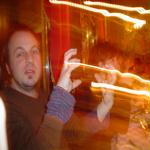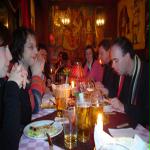Austro-Hungarian History
The long common history between Hungary and Austria was renewed when the polycollege team from Vienna came to visit Civil Radio in Budapest.
Interested listeners and guests flew in from Ireland and Germany.
See the story of the meeting.
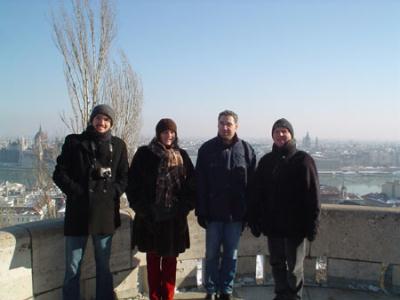
from left to right: Martin Mikulik and Susanne Schaefer-Wiery, Austria; Adam Magyar from Hungary; Herbert Depner from Austria.
The day before one could see a hard working poly-team (from left to right: Martin Mikulik, Sylvia Braunsteiner, Susanne Schaefer-Wiery):
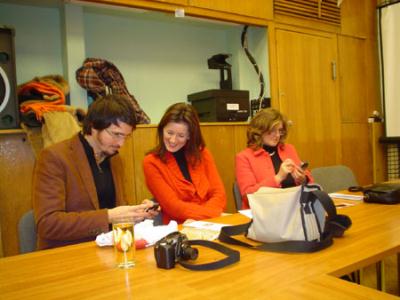
whilst project leader (and projector carrier) Herbert Depner had a good time signing The Irish-Austrian Cooperation Treaty of Budapest with Jim Doherty from Inishowen Community Radio (watched by Mura from ICR):
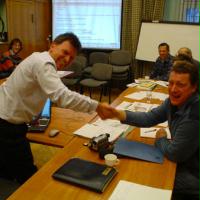
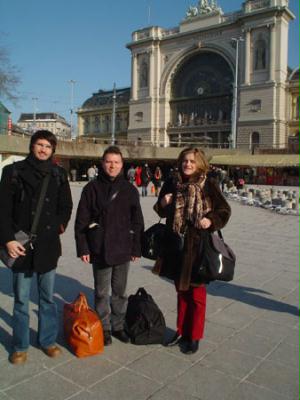
All too soon the departure came closer: See now the last official photo of the poly-delegation.
Bye, Bye Budapest: Thank you very much, Adam for your work! and Ferenc as well!
And: Welcome Freudenstadt in May!
Interested listeners and guests flew in from Ireland and Germany.
See the story of the meeting.

from left to right: Martin Mikulik and Susanne Schaefer-Wiery, Austria; Adam Magyar from Hungary; Herbert Depner from Austria.
The day before one could see a hard working poly-team (from left to right: Martin Mikulik, Sylvia Braunsteiner, Susanne Schaefer-Wiery):

whilst project leader (and projector carrier) Herbert Depner had a good time signing The Irish-Austrian Cooperation Treaty of Budapest with Jim Doherty from Inishowen Community Radio (watched by Mura from ICR):


All too soon the departure came closer: See now the last official photo of the poly-delegation.
Bye, Bye Budapest: Thank you very much, Adam for your work! and Ferenc as well!
And: Welcome Freudenstadt in May!
depner - 4. Feb, 14:21
